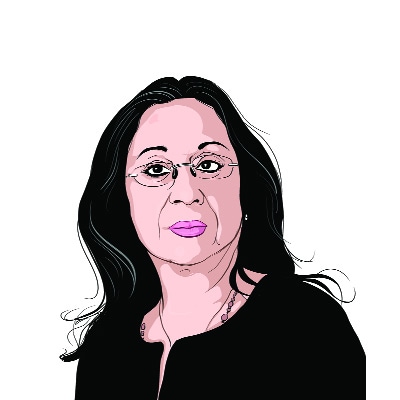Opinion Fifth column: Parivartan needed urgently
Social welfare system created by Nehruvian socialist India is supposed to help our weakest citizens. It does the opposite.

 Once a child is confined behind its high walls, it can only be released by the Child Welfare Committee after a hearing. (Source: Reuters)
Once a child is confined behind its high walls, it can only be released by the Child Welfare Committee after a hearing. (Source: Reuters)
There are ancient problems in our ancient land that are as important as national security and the economic slowdown, but us political pundits prefer to ignore them. In a twisted idea of patriotism, we choose not to shine a light on the darker facets of Indian democracy. Since we now have a prime minister who himself has taken to shining a light on the darker sides of Indian democracy and governance, I am going to do my bit, in my usual humble fashion, to help him whenever I can. What you are about to read today in this column is part of this endeavour.
Last week I got a telephone call that reminded me painfully that unless the nature of the Indian State changes, there will never be ‘parivartan’ or ‘vikas’. Four years ago, I helped rescue two little girls from the Dongri Children’s Home in Mumbai, where they had been confined for the ‘crime of begging’. Maisura and Megha were less than seven years old and could not understand why they were taken away from their parents. Nor were they old enough to understand crime and punishment. But the mighty Indian State treated them as criminals. The case against their mothers for abetting their crime continues. So a summons arrived last week for them to appear in court. In complete panic, one of them, Roopa, rang me to ask for the number of a lawyer.
Roopa has grown up on the streets of Mumbai. If you ask her what her childhood was like, she bursts into tears and tells you she was hungry all the time. “We used to be sent off in the morning to try and make some money,” she says, “and if we came back without earning some, we would get no food”.
Roopa lives in a corner of a car park behind the Air India building on Marine Drive and has no means of defending herself in court. But the Indian State that has failed to provide her or her family with basic services is now hounding her with this pointless court case that has gone on for four years. Instead, there should be a case against the Dongri Children’s Home, that is more prison than welfare institution. Once a child is confined behind its high walls, it can only be released by the Child Welfare Committee after a hearing.
Megha and Maisura cried so much when they were in custody that I appealed to a senior police officer to help me. All he could do was speed up the hearing, and this did not go down well with the presiding officer, Shaila Mhatre. She was a smug, middle-class lady who treated the girls as if they were convicted felons. When I said they were too young to know their crime, she said angrily, “I have seen three-year-old children arrested for begging”.
The social welfare system created by Nehruvian socialist India is supposed to help our weakest citizens. It does the opposite. It makes them victims. It leaves them totally at the mercy of the Indian State’s welfare and custodial institutions and its abysmal public services. When they get sick, they are forced to use government hospitals. The only schools they can afford for their children are government schools that often fail to teach them anything. So they leave school illiterate and remain unemployable all their lives.
The State has failed to build affordable housing in cities like Mumbai, so they end up living on the streets and eking out an existence any way they can. For this, they get arrested for vagrancy and begging, unless they can afford to bribe policemen. What kind of State treats children like criminals? The worst kind. The basic nature of the Indian State is so ugly that in areas where real governance is needed, we have officials whose only interest lies in securing a government job for life.
The people who become victims of these officials are our most vulnerable citizens. It is for them that Nehruvian socialism claimed to have created a vast infrastructure of public services. The truth is that they cannot be described as public services at all. This is why Nehruvian socialism’s worst failures have been in the social sector. In education, healthcare, welfare, public hygiene and sanitation. And, unless there is some real ‘parivartan’ in these areas urgently, the Prime Minister will find that he can lay out as many red carpets for foreign investors but India’s image will fail to improve.
UNICEF reports tell us that nearly a million newborn Indian children die every year. This means that one Indian baby dies every minute. Of those who survive every other child is officially malnourished. Far too many live on the streets of our cities. Do we need more proof of the failure of our welfare institutions?
Follow Tavleen Singh on Twitter @ tavleen_singh


